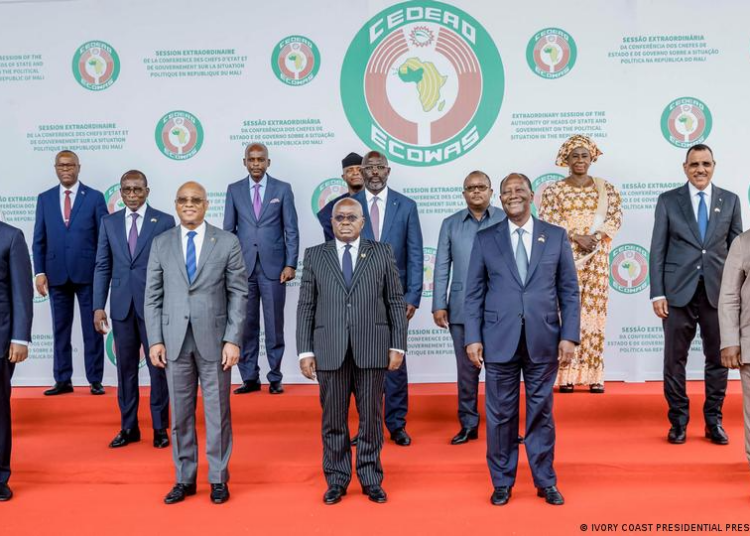The West African sub-region is grappling with a rising debt profile, crippling inflation and very disturbing currency depreciation that have affected growth and economic progress of the region after the COVID-19 disruptions.
These ugly indicators are widespread in the 15-member countries of the Economic community of West African States (ECOWAS) with the concomitant impact of economic slowdown despite some impressive records, a situation that requires strategic measures and deliberate steps to address.
This grim reality came to the fore, when the President of the ECOWAS Commission, Dr. Omar Touray presented the 2023 Annual State of the Community Report to the ECOWAS Parliament at the ongoing Second Ordinary Session of the regional parliament in Abuja on Thursday.
For a region suffering from political instability, insecurity, institutional encumbrances and the malaise of coup d’etat in some member countries, the unkind data presents a huge challenge to the regional leaders on the auspices of the Authority of Heads of State and Government, led by Nigeria’s President Bola Tinubu, to marshal out plans to reflate the economies and improve productivity.
According to Touray, “ the period under review was characterized by the continuation of geo-political conflicts, persistent inflationary pressures, high and rising public debts as well as tightening of monetary policies in most regions.
“In this context, the global economic output growth is expected to slow down to 3.0 per cent in 2023, compared to 3.5 per cent in 2022.
“However, the global inflation is expected to moderate at 6.9 per cent to 8.7 percent in 2022 due to the fall in the international prices for commodities, and the easing of supply bottlenecks especially in the second half of the year.”
He noted that “The performance of the ECOWAS economies in 2023 mimicked that of the global economy due to the strong linkages, especially by trade, investment and financial services. Thus, their growth rate slowed to 3.7 per cent in 2023 compared to 3.9 per cent in 2022.”
He said further that “the Annual average inflation is expected to peak at 20.0, compared to 17.3 per cent in 2022 due mainly to imports and depreciation of national currencies.”
“The public debt deteriorated further to 48.8 per cent of the Gross Domestic Products(GDP), compared to 36.8 per cent of the GDP in 2022,”he said, adding that the region’s budget deficit is expected to moderate slightly to 5.2 per cent of the GDP, compared to 5.4 per cent of the GDP in 2022, following increase in revenue administration and expense control.
An economic expert who analyzed the situation in West Africa, but does not want his name in print, said although the report highlighted the macro-economic situation, performances of ECOWAS institutions, and progress on regional integration and development agenda, the region is pressed to seek more investment in critical sectors.
He said “investment infrastructure and development of the digital economy, climate smart agriculture and most importantly processing the African primary products for massive commercialization in the global market are the ways to improve the regional economies.”
The report recommended strengthening regional cooperation, promoting private sector development, investing in human capital, and enhancing resilience to shocks. On the security situation, the report highlighted challenges posed by insecurity in Nigeria, including Boko Haram insurgency, criminal gangs in the South-East region, and secessionist movements and of course the rampaging jihadist violence in the Sahel region.
It must be stated that an important aspect of economic management is for the leaders to cut the cost of governance and reduce corruption in the region.
Democracy must be strengthened through loyalty to constitutionalism and respect for the will of the people by leaders.
ECOWAS has during the period under review made notable achievements, which include establishment of the ECOWAS National Biometric Identity Card (ENBIC), the introduction of ECOVISA (a single visa system), and the adoption of a set of 96 ECOWAS Standards (ECOSTANDS). But it must build capacity and enhance stability for it to take the lead in the African Continental Free Trade Agreement (ACFTA).





